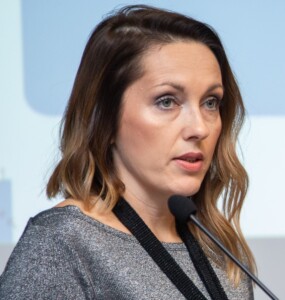How could it be that someone who sexually assaulted a child only serves a few months sentence, or practically avoids prison altogether? We have seen this in Montenegro.

Kristina Mihailovic
Any form of sexual abuse, and especially child abuse, provokes a rarely unified response and request from parents in Montenegro – life sentence for those proven to have commited this act. This suggestion is not often heard, or at least not at the scale it should be in order to become practice, as decision makers did not even want to consider it until now.
Protecting children from sexual abuse is a topic dealt with very superficially, and often there is very little done. When there is a public case, whether nationally or in the region, like these days, it sparks conversation for a while, yet it’s quickly forgotten.
Data would suggest that there are not many cases of sexual abuse in Montenegro, however the reality is that there are twenty unreported cases hidden behind each one that is. Data published in the Analysis of penal policies within Montenegrin courts in sexual abuse cases involving minors, in the period from the beginning of 2013 until March 2018, shows that there have been 35 convicted men, and one woman. Underage girls and girls up to the age of 14 were the most common victims of paedophilia in Montenegro. Among the convicted are two retired teachers.
It is clear what has to be done in order to protect the children. Minor convictions of three to five years in prison are not adequate, and it is even less acceptable for convictions to go under this legal minimum. There are no mitigating circumstances in these cases! How can the accused being a family man with children and no prior convictions be a mitigating circumstance? This should be an aggravating circumstance. How can someone who has sexually assaulted a child serve a prison sentence of a few months, or practically avoid imprisonment? We have seen cases go this way.
The Parents Association was promised by the Ministry of Justice that Penal Law reform will increase sentences for acts of sexual violence, however, there is no sign of life sentences being introduced. The explanation that this does not suit the commitment to our EU path is obsolete, as there are EU countries which allow for life sentences. So we will not rest our case, and we have another suggestion – to change the norms which define mitigating circumstances in these cases. It is clear that current mild policies and practice are not strong enough of a warning to those who commit these crimes. This is not where the story ends – there is a lot of work left to be done with the registry, treatment of those convicted, judicial training, but we know our priority.
The role of the parent is extremely significant, and we must work on keeping parents informed. We have to be able to speak to our children, be the people they trust, they can speak to; we must be able to teach them from a young age to recognise what no one can tell them or do to them. The Serbian Aleksic case has made us wonder – who is it that controls the activities of those who organise different extra-curriculars, or performs checks on the individuals directly involved with children. NO ONE, as far as we know, and this is exactly what needs to be changed.
Kristina Mihailović, Executive director of Parents NGO, Podgorica



Leave A Comment